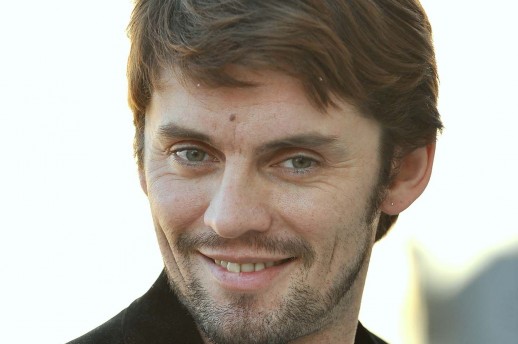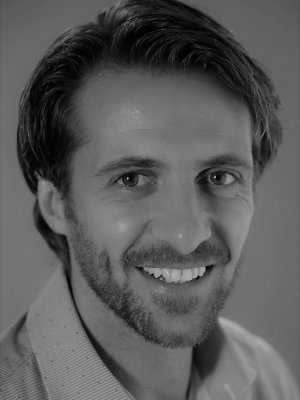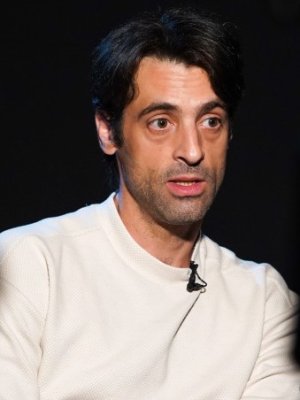Alexander
ballet choreographed by Ronald Savković

A WORD BY THE AUTHOR
… Complex personality of Alexander the Great, a general, half-God, lover, conqueror of the world, dramaturgically opens various perspectives. He was considered the Great, constantly worshiped (allegedly, everybody kneeled before him wherever he went). He believed that he is actually a son of God. My approach is based on a belief that people make him better and stronger. He lived between the wars. There was peace in the period, but he was constantly restless. The restlessness led him to a new war. The operative word characteristic of him is restlessness. He did not choose his life. Alexander is a melancholic, thirsty for knowledge and in a constant quest for the unknown. At the same time, he is both emotional and cold, determined and radical. He demonstrated these character traits from early age. Everything he did was full of passion, both the invasions and love relationships. Maybe I have taken a slight turn into an autobiographic story…
I decided to have the world premiere in Belgrade, firstly because of importance of the name of Alexander the Great for this region. I am not talking about potential of the company and about technical potentials of the theatre. I am thinking about the Slavic soul, restlessness in heart that exists in this nation. The Belgrade Ballet Company has spontaneously reacted to the music from the play. Their sensibility tells me that they can experience and revive my ideas. It is tremendously important to choose with whom you are going to share your dream… Alexander’s ideas represent the origins of globalisation, of a big Europe without borders. He did not only conquer territories, he conquered people’s hearts. These people feel that and recognise their own restlessness in him. This is the reason I am here…
Taken from: Ronald Savković stages a ballet about Alexander the Great, Theatre Newspaper, Belgrade,
By Brankica Knežević
 RONALD SAVKOVIĆ
RONALD SAVKOVIĆ
Ronald Savković was born in Rijeka, Croatia. After having received ballet education in Budapest, he has been engaged as a principal dancer in Slovenian National Theatre in Maribor, Croatian National Theatre in Zagreb and in Staatsballet in Berlin. Ronald has danced in numerous roles in classical, neoclassical and modern repertoire. In the course of his career, he has cooperated with the most renowned choreographers. Roles: Swan Lake (choreographies by P. Bart, R. Nurejev, V. Koftun, D. Parlić), Giselle (P. Bart), Nutcracker (P. Bart), La Bayadere (R. Nurejev, V. Malkhov), Sleeping Beauty (R. Nurejev), Coppelia (I. Sertić), Romeo and Julia (P. Bart), Don Quixote (P. Bart, V. Vasiliev), Manon (K. Macmillan), Onegin (J. Cranko), Sulphides (M. Fokine), Cinderella (V. Malakhov), Serenades, Ballet Imperial, Tchaikovsky - Pas de deux, Apollo Musagetes (G. Balanchine), Variations on a Theme by Haydn (T. Tharp), Fearful Symmetries (P. Martins), Ein Lindentraum (U. Scholz), Ring um den Ring (M. Bejart), Sylvia (F. Ashton), No Step on Grass (I. Favier), Without Words (N. Duato), Return to the Strange Land (J. Kylian), Le Lac de fee (P. Lacotte), Rin um der Ring (M. Bejart), Steptext, In the Middle Somewhat Elevated, The Second Detail (V. Forsythe), Tchaikovsky (B. Eifman) Savković’s partners have been renowned prima ballerinas, such as Polina Semionova, Nadja Saidakova, Aurelie Dupont, Margarete Illmann, Steffi Scherzer, Beatrice Knop, Larisa Lezhnina, Diana Vishneva , Bettina Thiel, Bojana Nenadovic and Viara Natcheva. He has toured throughout the world, and in the National Theatre in Belgrade, he danced in ballets Don Quixote and Swan Lake on several occasions. Savković has received important recognitions and awards: Award from Vladimir Vasiliev at Perm International Ballet Competition, Russia (Siegfried in Swan Lake); Croatian Academy of Art Award (for the role of Espada in Don Quixote), Croatian National Theatre Award for the role in ballet Falling Angels, choreography by I. Favier, as well as for the role of Albrecht in Giselle, Superstar of 21 Century Award from New York Parliament (New York, 2007 and 2008). In the last five years, Savković has successfully choreographed numerous pieces.
 ALEXANDER THE GREAT (356–323 BC)
ALEXANDER THE GREAT (356–323 BC)
Alexander was born in Pella, the capital of ancient Macedonia in July 356 BC. His parents were Philip II of Macedon and his wife Olympias. Alexander was educated by the philosopher Aristotle. Philip was assassinated in 336 BC and Alexander inherited a powerful yet volatile kingdom. He quickly dealt with his enemies at home and reasserted Macedonian power within Greece. He then set out to conquer the massive Persian Empire. Against overwhelming odds, he led his army to victories across the Persian territories of Asia Minor, Syria and Egypt without suffering a single defeat. His greatest victory was at the Battle of Gaugamela, in what is now northern Iraq, in 331 BC. The young king of Macedonia, leader of the Greeks, overlord of Asia Minor and pharaoh of Egypt became ‘great king’ of Persia at the age of 25. Over the next eight years, in his capacity as king, commander, politician, scholar and explorer, Alexander led his army a further 11,000 miles, founding over 70 cities and creating an empire that stretched across three continents and covered around two million square miles. The entire area from Greece in the west, north to the Danube, south into Egypt and as far to the east as the Indian Punjab, was linked together in a vast international network of trade and commerce. This was united by a common Greek language and culture, while the king himself adopted foreign customs in order to rule his millions of ethnically diverse subjects. Alexander was acknowledged as a military genius who always led by example, although his belief in his own indestructibility meant he was often reckless with his own life and those of his soldiers. The fact that his army only refused to follow him once in 13 years of a reign during which there was constant fighting, indicates the loyalty he inspired. He died of a fever in Babylon in June 323 BC.
Source BBC History
Premiere performance
Premiere, November 15th 2011 / Main Stage
Ballet in one act
Music Various Artists
Choreography and libretto Ronald Savković
Costumes Jelena Miletić
Sets Lukas Lerh
Artistic Associate Anina Stanču
Premiere cast:
Alexander Jovan Veselinović
Olympia, the Queen Mila Dragičević
Roxana, Bactrian Princess Ana Pavlović
Hephaestion Igor Vološin
King Philip II Milan Rus
King Darius III Jovica Begojev
Stateira, Persian Princess Tamara Ivanović
Drypetis, Persian Princess Bojana Žegarac
Bagoas Igor Pastor
The Time Dejan Kolarov
Slaves Strahinja Lacković, Nikola Tomašević
Woman Warrior Olga Olćan, Sanja Ninković
Harem Princesses Ivanka Kozomara, Dušanka Đorđević, Lidija Pavlović, Ana Ivančević, Nelka Lazović, Smiljana Stokić, Tamara Szilagyi
Bactrian Women Margareta Bata, Olivera Gavrilov, Ines Ivković, Nada Stamatović, IVA Ignjatović, Milena Ivić, Verica Stanojević
Soldiers Miloš Marijan, Igor Čupković, Miloš Kecman, Čedomir Radonjić, Aleksa Jelić, Mihajlo Stefanović, Balint Rauscher, Stefano Peschiulli, Dušan Milosavljević
Generals Goran Stanić, Nebojša Stanković
Anubis Aleksa Jelić
Members of the National Theatre’s Ballet Studio Branko Radovanović, Zoran Trifunović
Music by: Dead Can Dance, Tyler Bates 300, Hans Zimmer, Nat King Cole
Acting Director of the Ballet Miloš Dujaković
Organisers Brankica Knežević, Gojko Davidović
Ballet Associate Ivanka Lukateli
Digital mastering and editing Petar Antonović
Assistant Costume Design Srđan Perić
Make-Up Dragoljub JEREMIĆ
Light Operator Miodrag Milivojević
Set Crew Chief Nevenko Radanović
Sound Operator Perica Ćurković
Stage Manager Brankica Pljaskić



























